Abstract
Skinner's pragmatic selectionism shows up strongly in his 1945 publication, “The Operational Analysis of Psychological Terms,” in which he introduced a probabilistic three-term contingency for verbal behavior. This probabilism was accompanied by an expanded contextualism and an increased emphasis on consequences with a clear alignment to pragmatism. In total, these changes represent Skinner's most striking shift from mechanistic and necessitarian values to pragmatic selectionism, and these changes may be indebted more to the conceptual contributions of others than Skinner acknowledged. Before 1945, Skinner made at least some positive associations with the views of Watson, Russell, and Carnap. From 1945 and afterwards, he strongly disassociated his views on verbal behavior from theirs. Before 1945, Skinner did not associate his views with those of Darwin or Peirce. After 1945, he strongly associated his views with those of Darwin and Peirce (in one published interview). No sources for his pragmatic selectionism, however, were referred to in 1945.
Keywords: B. F. Skinner, Charles S. Peirce, three-term contingency, pragmatism, selectionism, verbal behavior
Full text
PDF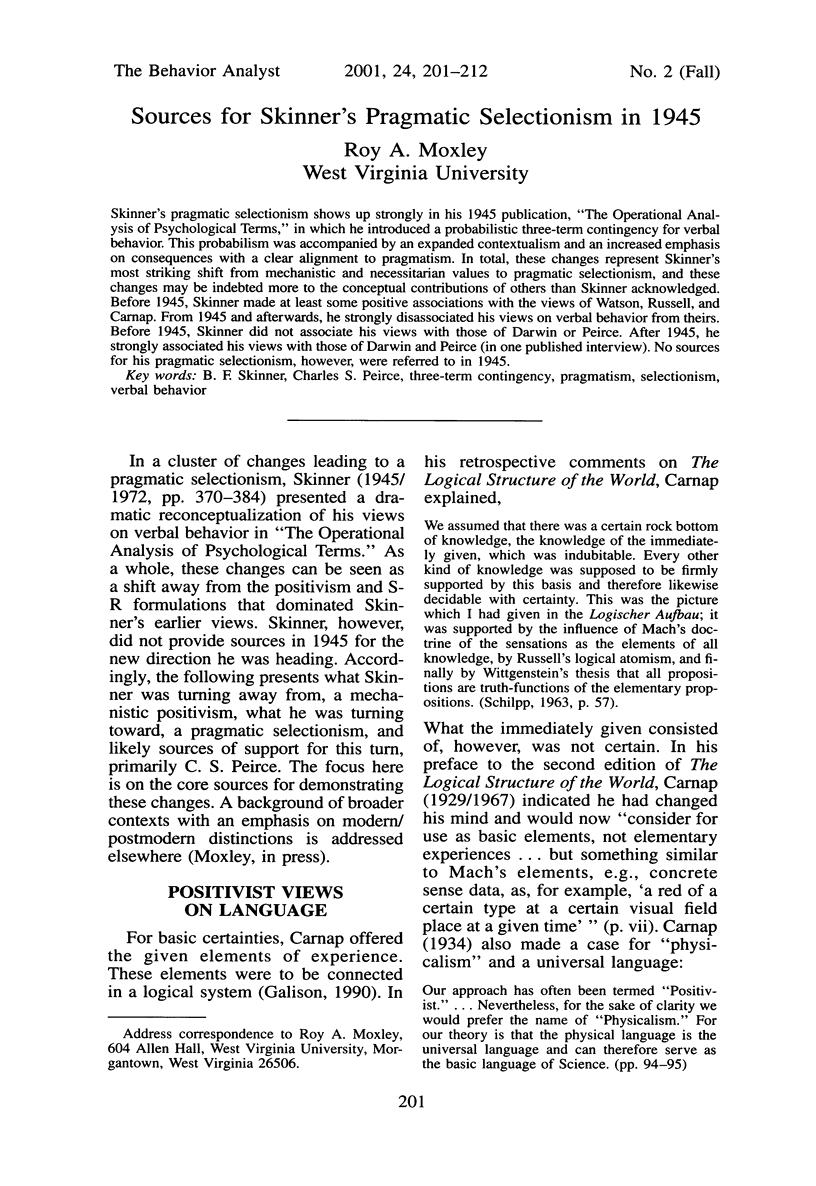
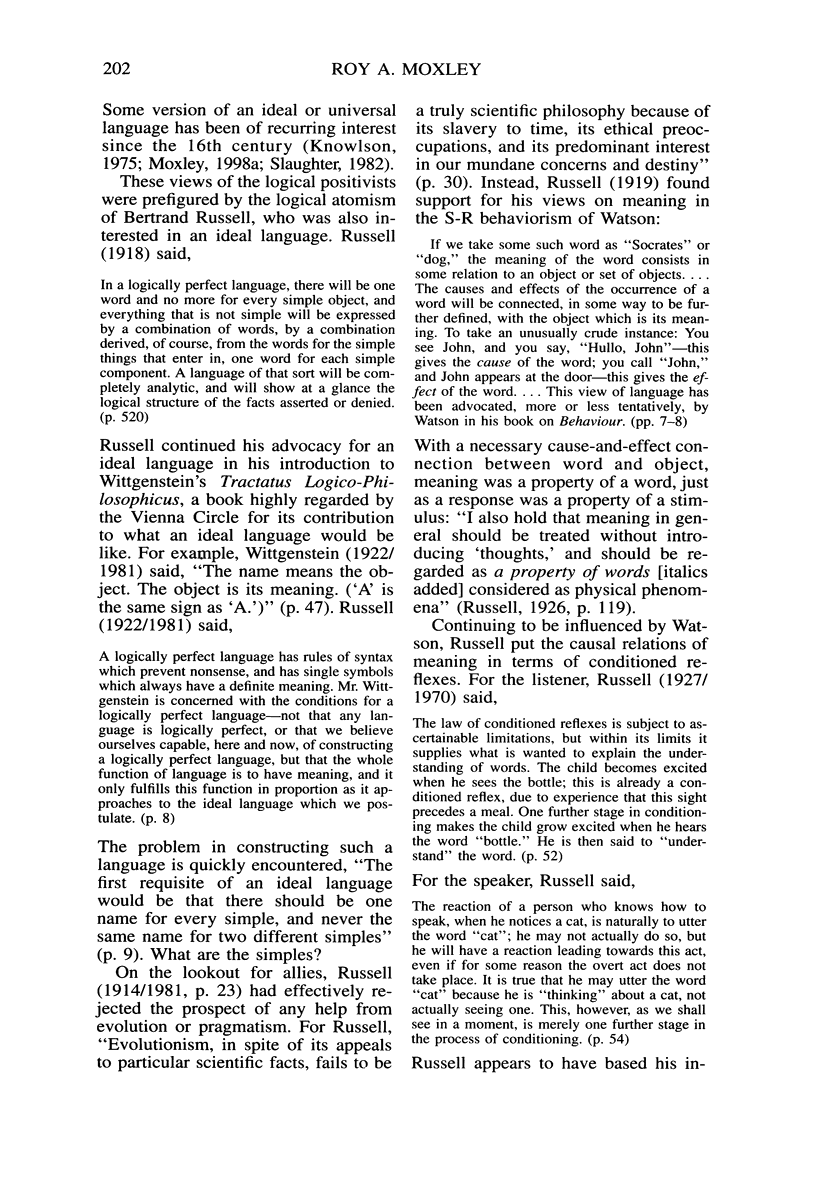
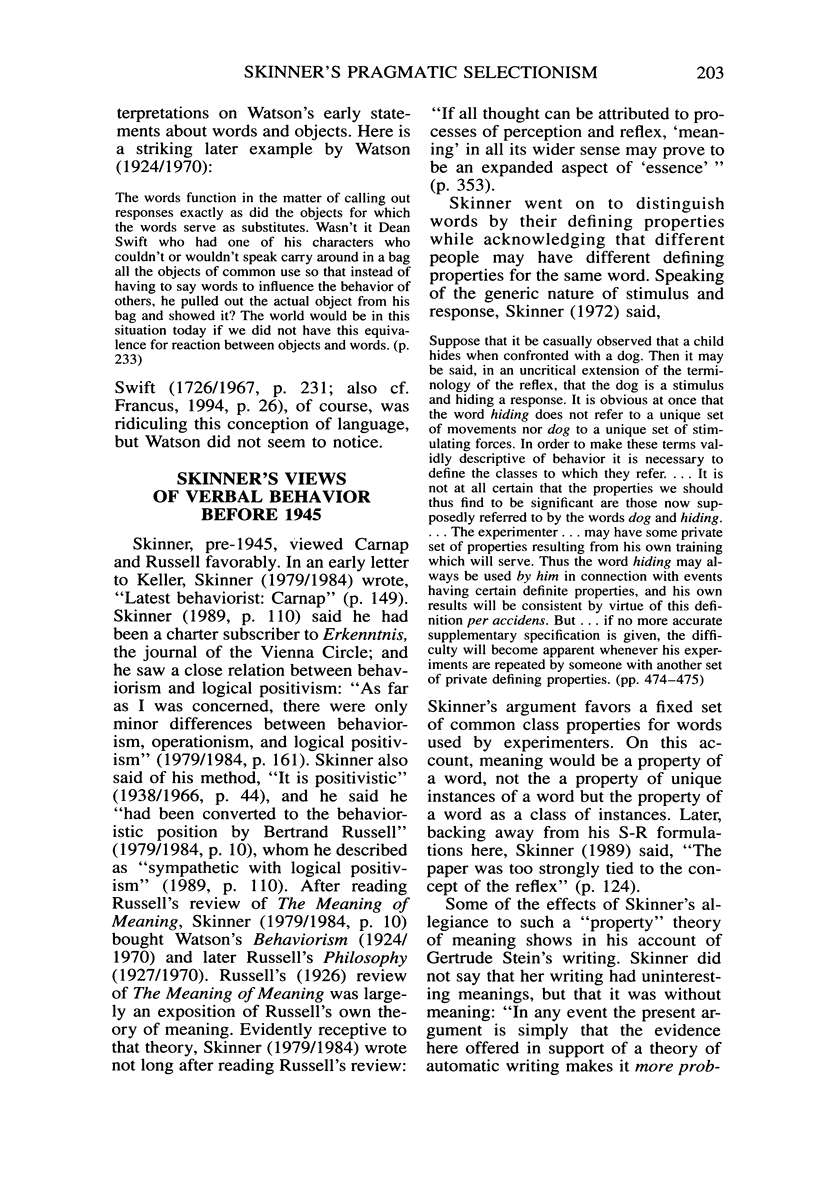
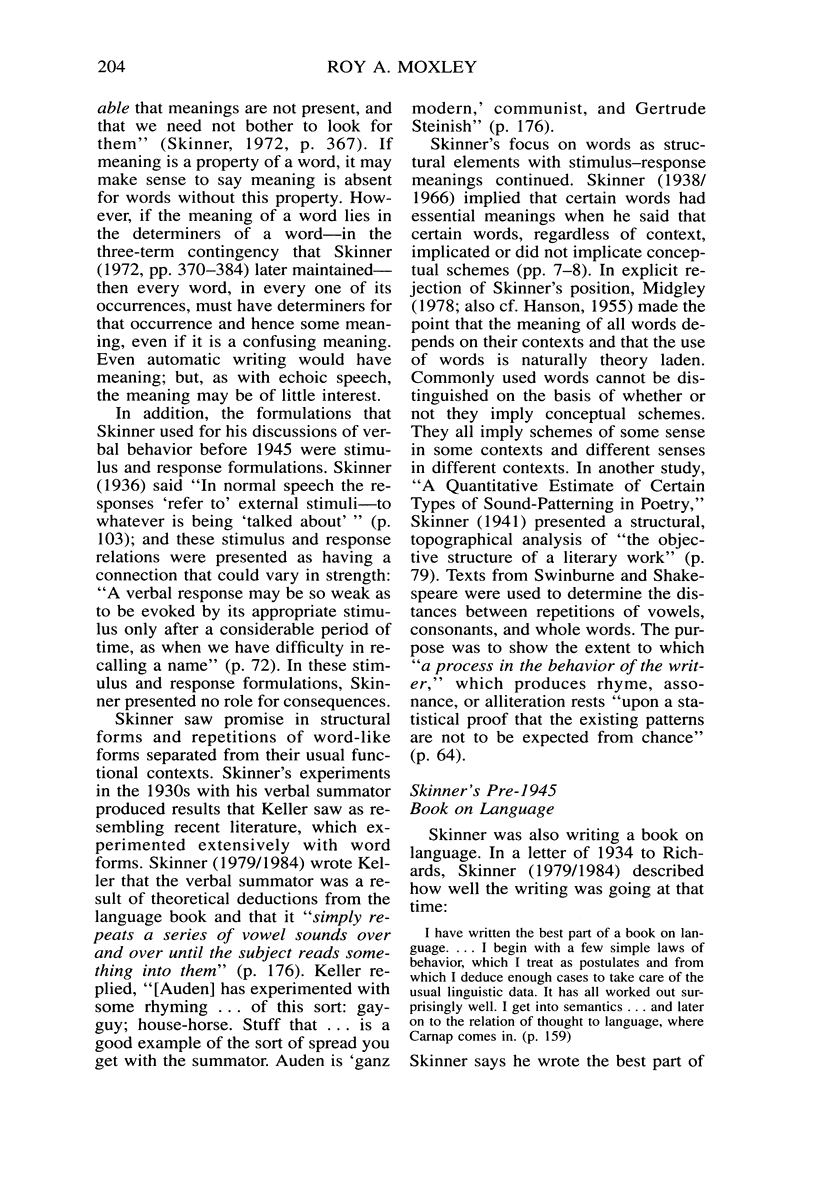
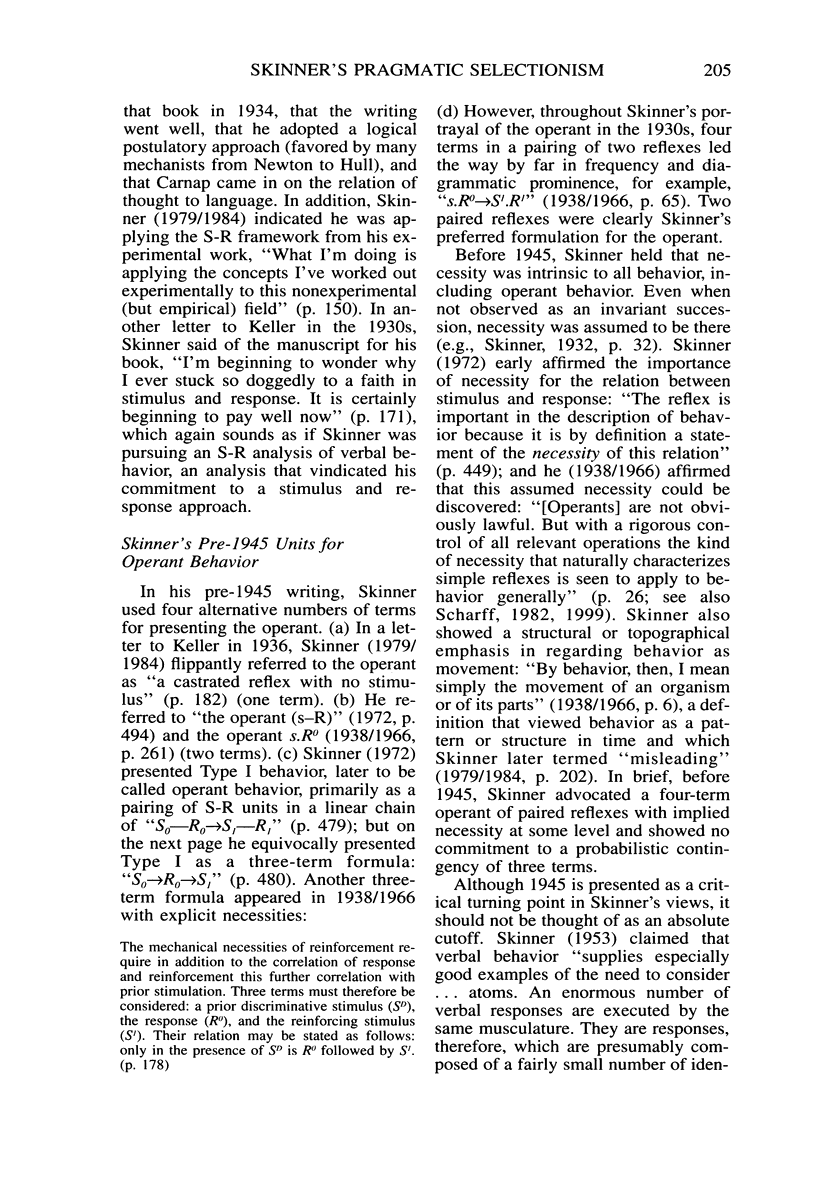
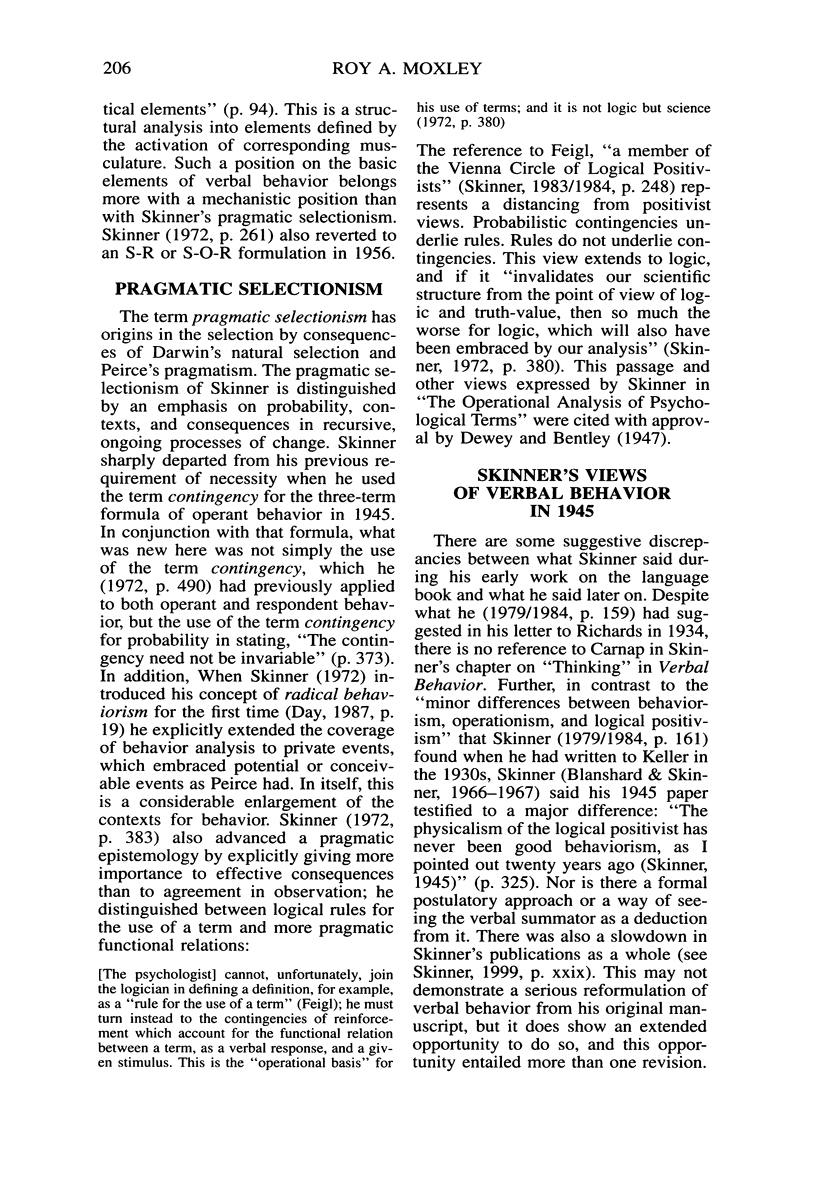
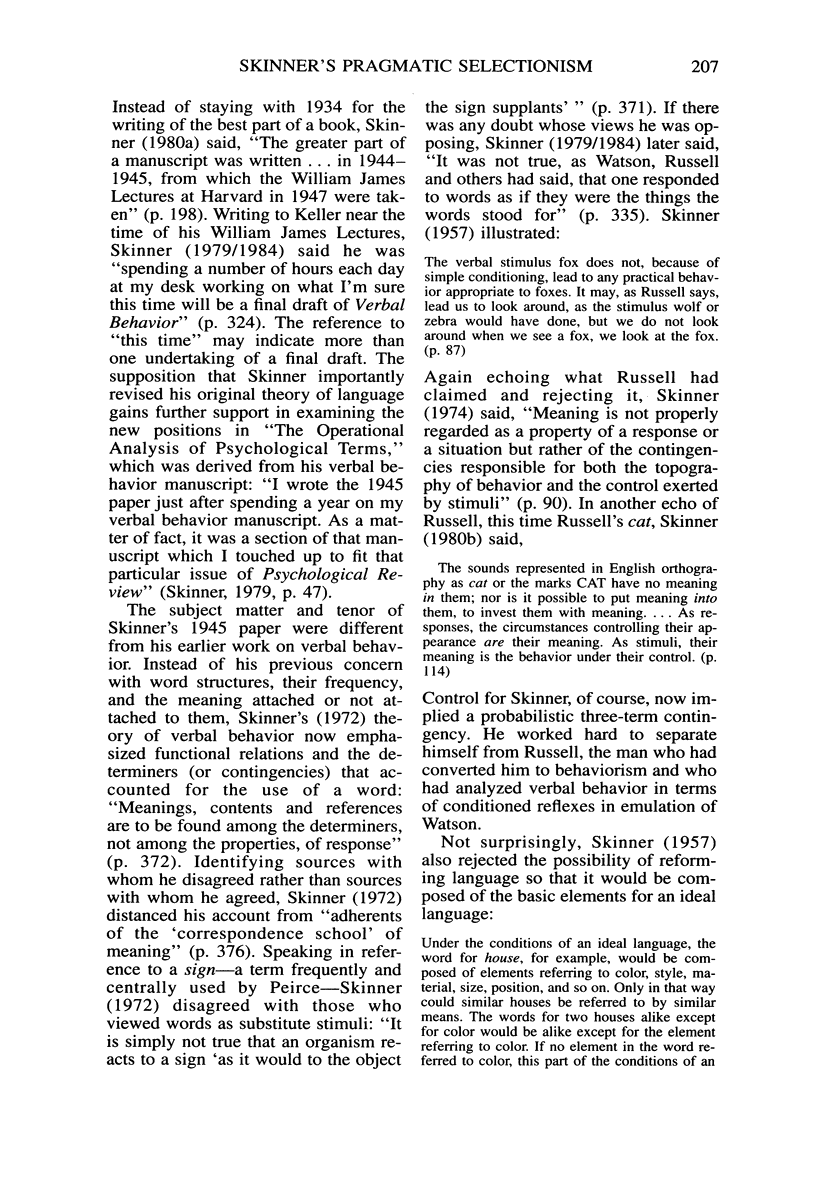
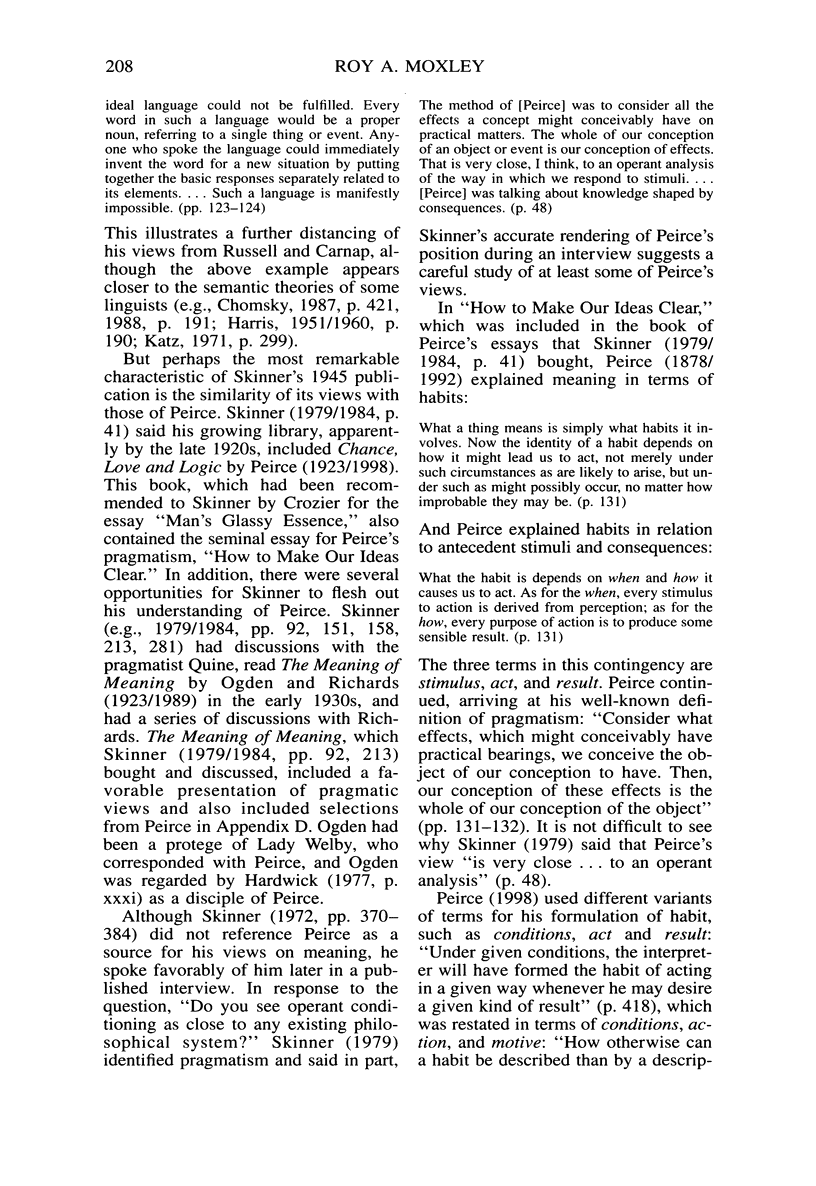
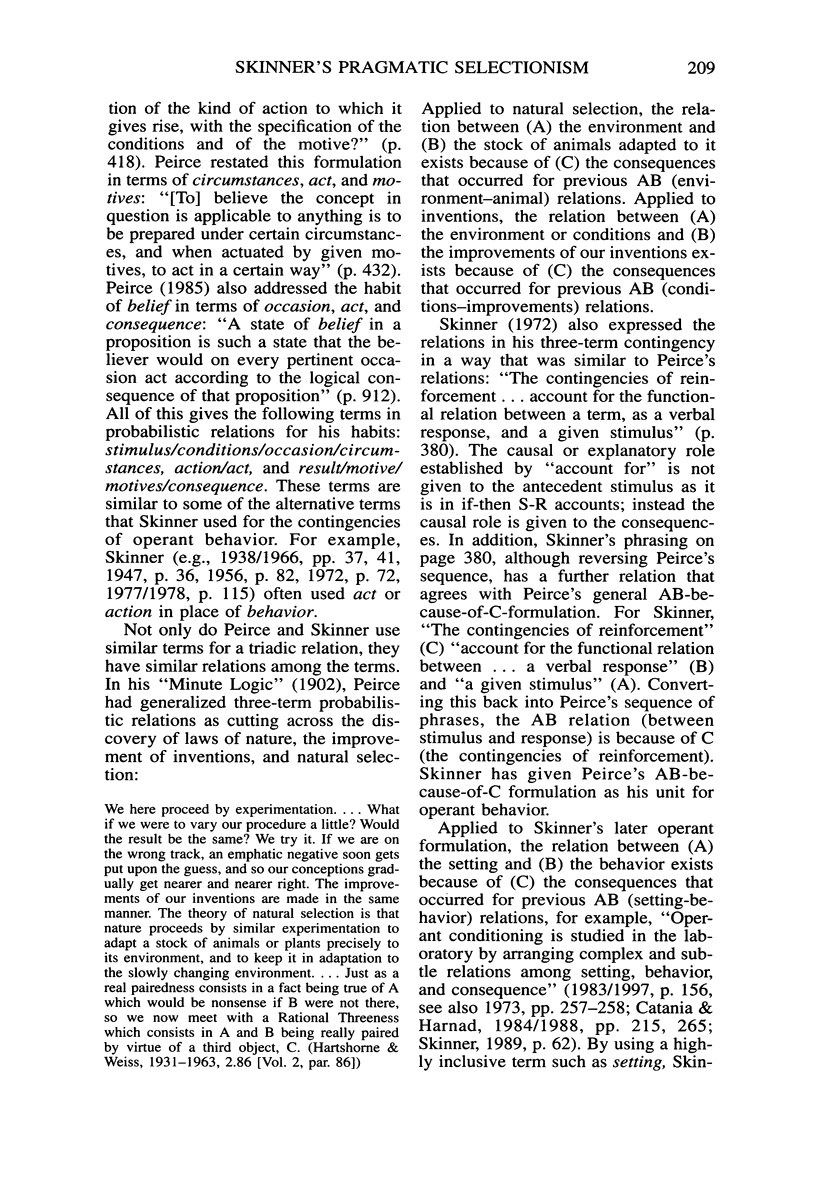
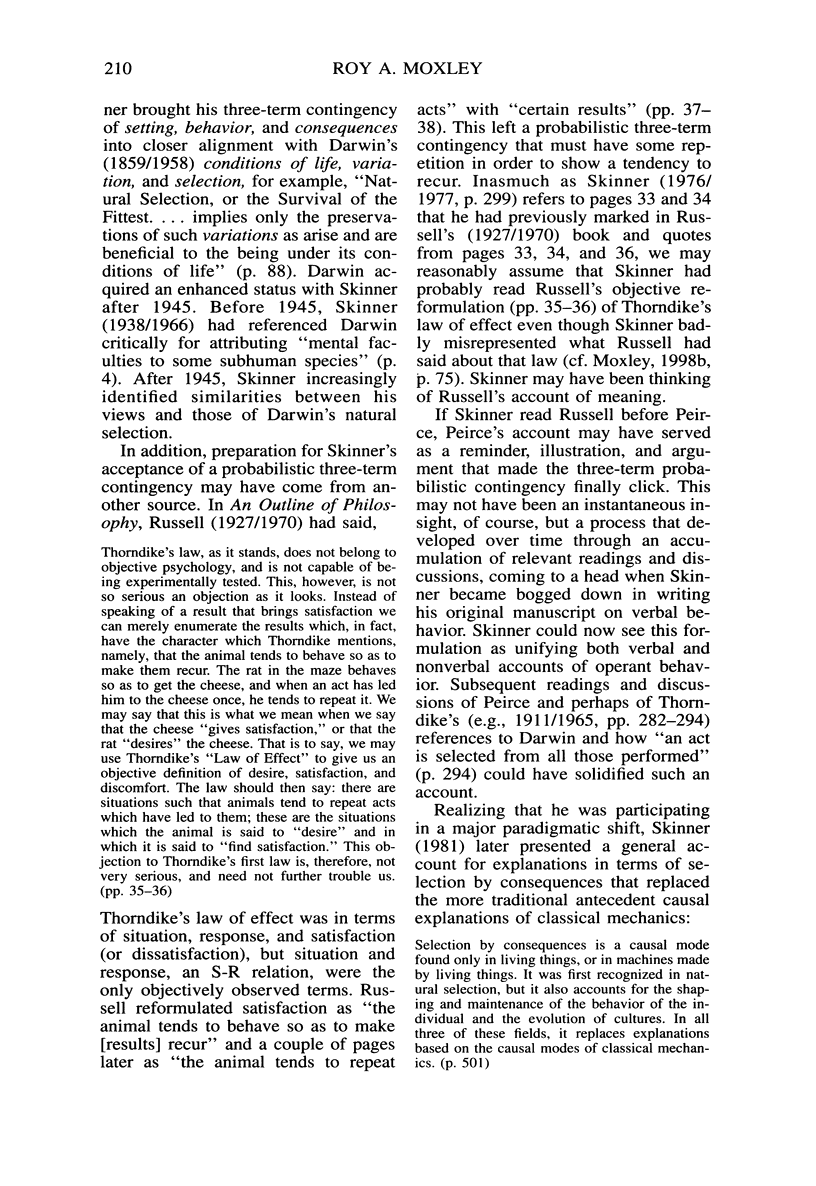
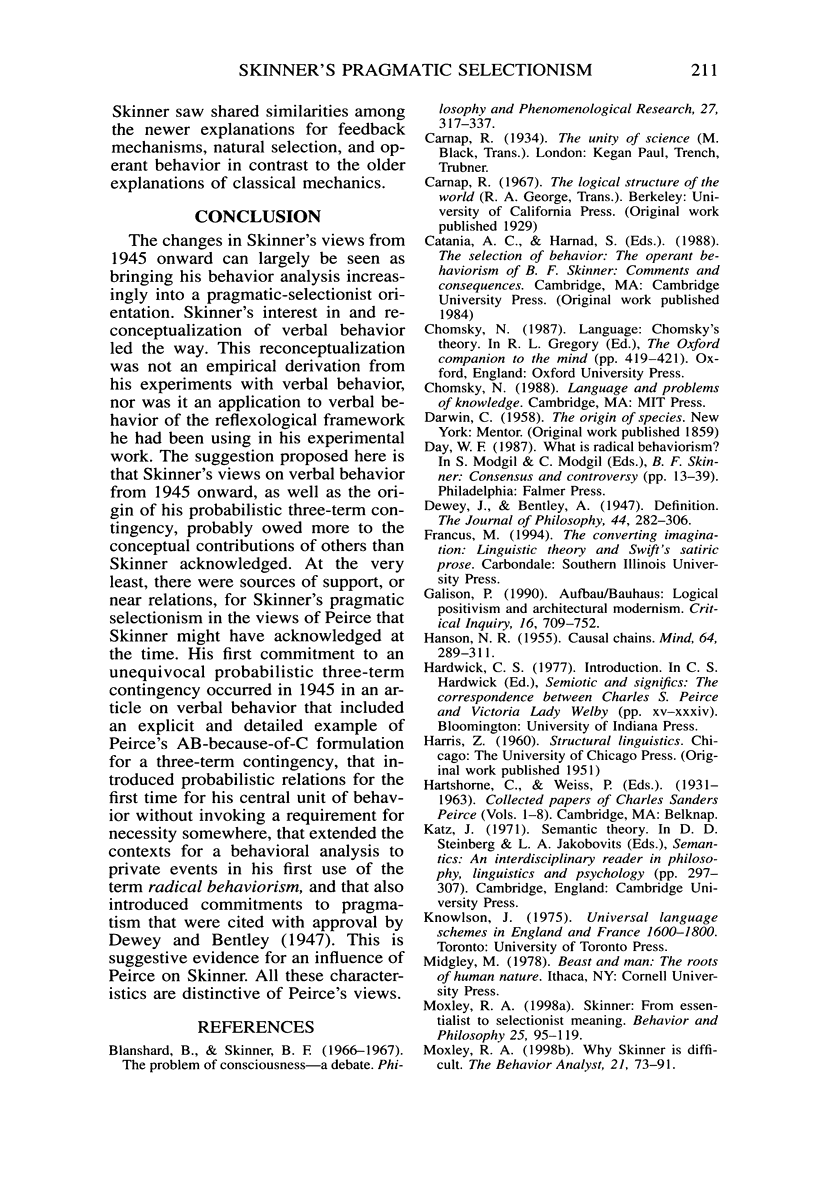
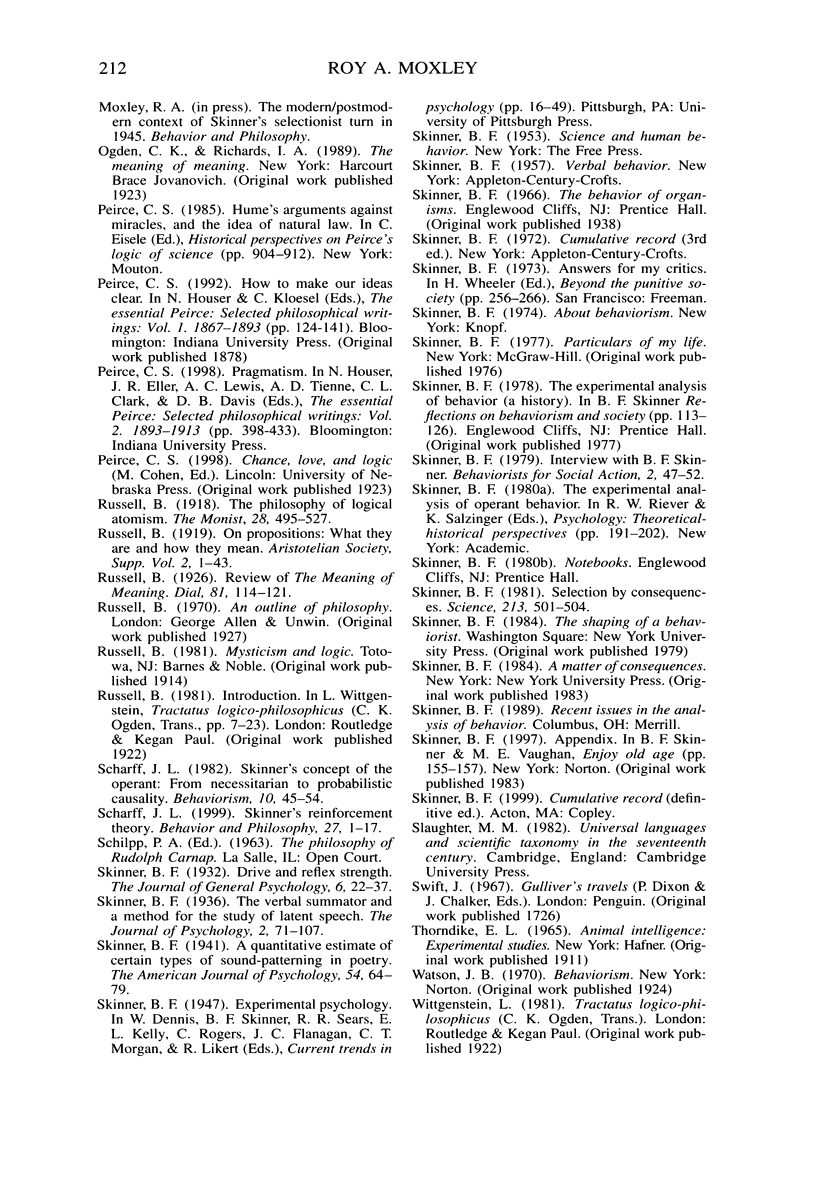
Selected References
These references are in PubMed. This may not be the complete list of references from this article.
- Moxley R. A. Why Skinner is difficult. Behav Anal. 1998 Spring;21(1):73–91. doi: 10.1007/BF03392781. [DOI] [PMC free article] [PubMed] [Google Scholar]
- Skinner B. F. Selection by consequences. Science. 1981 Jul 31;213(4507):501–504. doi: 10.1126/science.7244649. [DOI] [PubMed] [Google Scholar]


